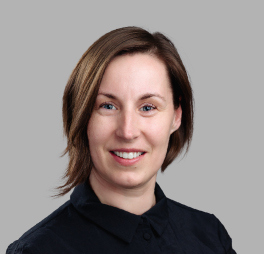Executive
Education
Courses
Take Executive Education courses at Riga Business School to keep up with the latest developments in business education. Whether you’re a recent graduate or it’s been years since you called yourself a student, we welcome you to continue growing. This is an opportunity for you to develop and update your talents.
Sept 6 – Dec 11
Wednesdays,
In-Person

Līga Ozoliņa

Kārlis Jonāss
Innovation and Creativity: Design Thinking in Practice
Immerse yourself in the world of design thinking through a practice-based learning approach and real-world challenges. You’ll apply your knowledge and skills to explore and solve complex problems while honing your creative thinking and effective collaboration abilities. By the course’s end, you’ll emerge with practical experience to develop innovative, human-centered solutions that address real challenges in today’s dynamic world.
Course is priced at 750 Eur + VAT
Requirements to receive the certificate:
- 80% attendance
- active participation in classes that includes discussions, group and individual work.
| Week | Topic | What to expect |
|---|---|---|
| Week1 Sep 6 |
Introduction | Walk through the design thinking process in just 3 hours |
| Week2 Sep 13 |
Problem Framing | Forming teams and challenges |
| Week3 Sep 20 |
Qualitative Research: Interviews |
Getting ready for stakeholder interviews |
| Week4 Sep 27 |
Research Synthesis I | Analyzing interview results through interview coding |
| Week5 Oct 4 |
Ideation | Generating and prioritizing ideas |
| Week6 Oct 11 |
Low Fidelity Prototyping and Testing |
Creating low fidelity prototype and preparing user interview script |
| Week7 Oct 18 |
Result Interpretation I | Conclusions and next steps for the next iterations |
| Week8 Oct 23-27 |
Mid Term break | Mid Term break |
| Week9 Nov 1 |
Quantitative Research: Observations |
Getting ready for stakeholder observations |
| Week10 Nov 8 |
Research Synthesis II | Analyzing observation results |
| Week11 Nov 15 |
Ideation with AI tools | Generating ideas using AI tools |
| Week12 Nov 22 |
High Fidelity Prototyping | Familiarizing with several useful tools for high fidelity prototyping phase |
| Week13 Nov 29 |
Quantitative Testing | Getting to know tools useful for quantitative testing |
| Week14 Dec 6 |
Result Interpretation II | Conclusions and next steps |
| Week 15 Dec 13 |
Final Presentations and Lessons Learned |
Teams and individual learnings |
Innovation and Creativity: Design Thinking in Practice

Līga Ozoliņa

Kārlis Jonāss
Sept 6 – Dec 11
Wednesdays,
In-Person
Immerse yourself in the world of design thinking through a practice-based learning approach and real-world challenges. You’ll apply your knowledge and skills to explore and solve complex problems while honing your creative thinking and effective collaboration abilities. By the course’s end, you’ll emerge with practical experience to develop innovative, human-centered solutions that address real challenges in today’s dynamic world.
Course is priced at 750 Eur + VAT
Requirements to receive the certificate:
- 80% attendance
- active participation in classes that includes discussions, group and individual work.
| Week | Topic | What to expect |
|---|---|---|
| Week1 Sep 6 |
Introduction | Walk through the design thinking process in just 3 hours |
| Week2 Sep 13 |
Problem Framing | Forming teams and challenges |
| Week3 Sep 20 |
Qualitative Research: Interviews |
Getting ready for stakeholder interviews |
| Week4 Sep 27 |
Research Synthesis I | Analyzing interview results through interview coding |
| Week5 Oct 4 |
Ideation | Generating and prioritizing ideas |
| Week6 Oct 11 |
Low Fidelity Prototyping and Testing |
Creating low fidelity prototype and preparing user interview script |
| Week7 Oct 18 |
Result Interpretation I | Conclusions and next steps for the next iterations |
| Week8 Oct 23-27 |
Mid Term break | Mid Term break |
| Week9 Nov 1 |
Quantitative Research: Observations |
Getting ready for stakeholder observations |
| Week10 Nov 8 |
Research Synthesis II | Analyzing observation results |
| Week11 Nov 15 |
Ideation with AI tools | Generating ideas using AI tools |
| Week12 Nov 22 |
High Fidelity Prototyping | Familiarizing with several useful tools for high fidelity prototyping phase |
| Week13 Nov 29 |
Quantitative Testing | Getting to know tools useful for quantitative testing |
| Week14 Dec 6 |
Result Interpretation II | Conclusions and next steps |
| Week 15 Dec 13 |
Final Presentations and Lessons Learned |
Teams and individual learnings |